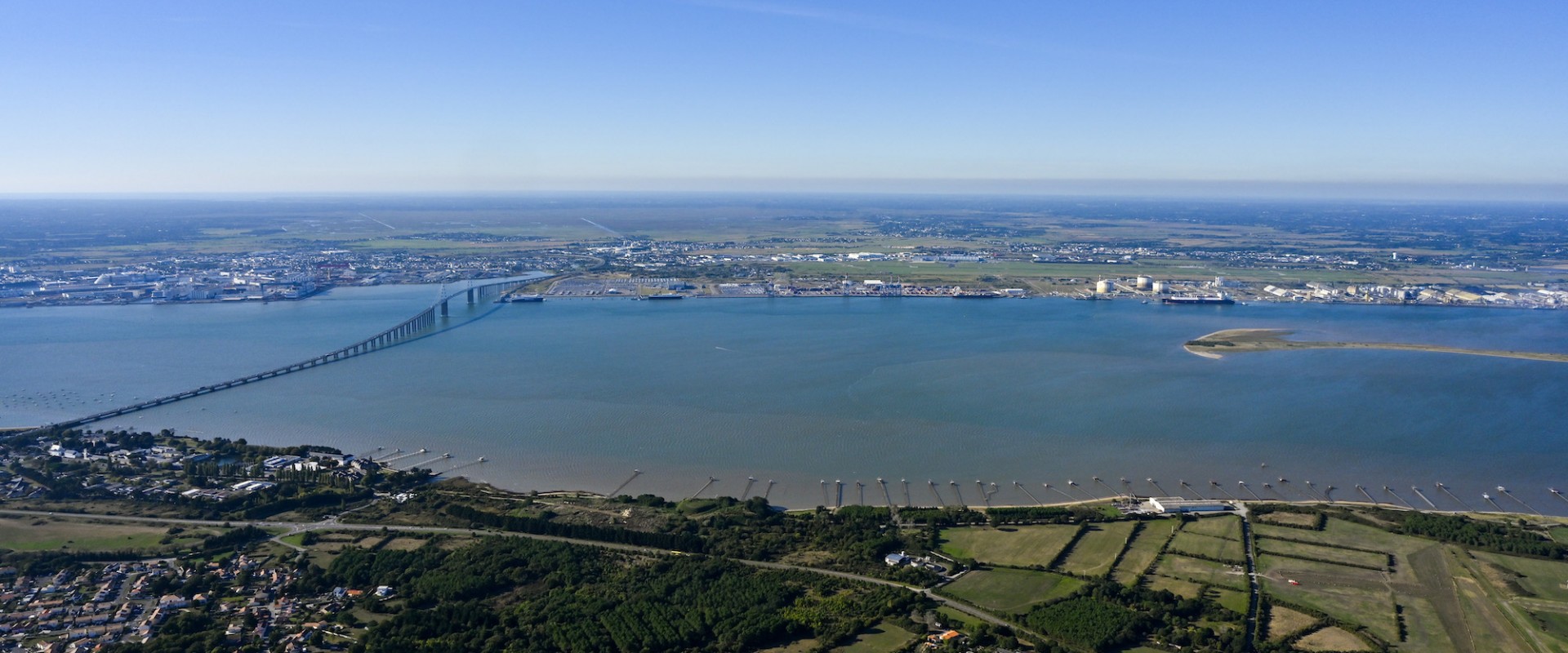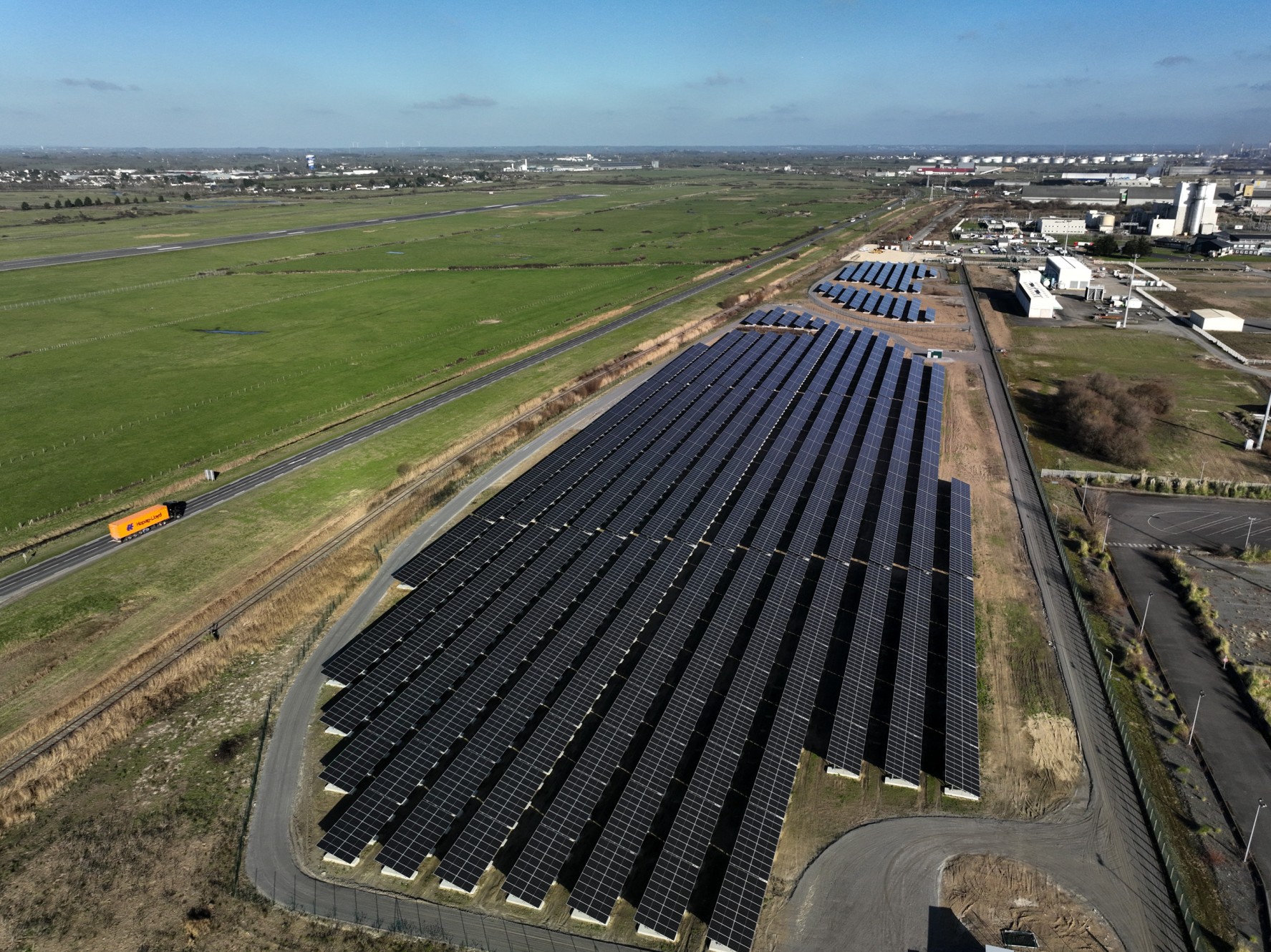
Towards the Decarbonization of port activities
As gateways to the country and leading industrial and logistics hubs, major seaports have a key role to play in reducing greenhouse gas emissions. They are major players in the ecological transition, which includes the deployment and supply of clean energy, the promotion of virtuous logistics chains, the development of industrial ecology and the circular economy, the strengthening of measures to mitigate and adapt to the consequences of climate change, and better protection of biodiversity.
For Nantes – Saint-Nazaire Port, where 70% of traffic is currently linked to fossil fuels, the decarbonisation of the port area is a double challenge, as it involves both making the ecological transition and ensuring the shift of its economic model towards a low-carbon model.
Decarbonization: joining a collective effort
Nantes ‒ Saint Nazaire Port is committed to the decarbonization of the Loire Estuary industrial and port activity zone, through the Loire Estuary Decarbonization programme. The Port Authority is involved in the construction of a transition economy working towards delivering a decarbonized industry by 2050.
In July 2023, the Loire Estuary Regional Community comprising AILE, the Loire Estuary Association of Industrial Firms, Nantes ‒ Saint Nazaire Port, Saint Nazaire Urban Area District Authority, Estuaire et Sillon Community District Authority, and Pays de la Loire Regional Authority, produced the successful bid following the call for proposals by the French National Agency for Energy Transition (ADEME) for a low-carbon industrial activity zone ("ZIBaC") within the framework of the "France 2030" Programme. This ZIBaC accreditation, which makes it possible to secure funding to ramp up the decarbonization and energy transition of the Regional Community’s industries, gave rise to the Loire Estuary Decarbonization initiative. Since its launch in February 2024, many economic players have joined this Collective, including GRTgaz, Elyse Energy, Lhyfe, Airbus, GRDF, Akajoule, Enedis, Veolia, Orace, Groupe Idea and RTE. Over 25 partners are now involved.
22nd November marked a key stage in the implementation of this initiative, with the signing of the ZIBaC agreement with ADEME, formalizing the Loire Estuary Decarbonization study programme. This 6.6 million euro programme is founded on around twenty targeted actions aimed at accelerating the transformation of this area of industrial and port activities, which accounts for 28 700 jobs. The actions focus on the following themes: energy infrastructure and uses, energy production, industrial ecology, environmental resilience, and regional economic development. As the DNA and impetus of the Loire Estuary Decarbonization initiative, the studies are driven by public-private partnerships.
Certain projects are well advanced. This is notably the case for the study concerning the reinforcement of the electricity network carried out by RTE, for which France’s Energy Regulation Commission (CRE) gave its authorization in December 2024 in order to pool and to anticipate the investments needed to augment the connection capacities of the Loire Estuary zone. There is also the GO CO2 project, a CO2 transport infrastructure project designed to decarbonize the Region’s biggest emitters. In January 2025, this project was selected by the European Union’s Connecting Europe Facility (CEF) programme.
Supporting the development of renewable energies
In parallel with the Loire Estuary Decarbonization programme, Nantes Saint-Nazaire Port has undertaken actions aimed at supporting the development of renewable energies. Since 2020, Nantes Saint-Nazaire Port has been working on two areas:
The deployment of ground-based photovoltaic parks;
The provision of offshore wind turbine assembly sites.
Since 2023, it has been home to two power plants in Montoir de Bretagne, covering an area of 9 hectares with a total capacity of 9.5 MWp.
In addition, Nantes Saint-Nazaire Port intends to actively participate in the development of fixed and floating offshore wind power. In 2021, it redeveloped and prepared a 12-hectare site to enable the pre-assembly phase of fixed wind turbines. This has enabled it to accommodate the components (Figure 6) of the 80 wind turbines of the future offshore wind farm off the coast of Saint-Nazaire, which was commissioned at the end of November 2022 with a capacity of 480 MW.
Nantes Saint-Nazaire Port now wishes to capitalise on this experience to rethink the place of renewable energies in its economic model and support national energy and ecological transition policies. The next step is to provide the offshore sector with an industrial integration base dedicated to fixed and floating wind turbines. This project, named Éole, will be a strong marker of Nantes Saint-Nazaire Port's commitment to the development of large-scale, high-capacity floating wind turbines.

Nantes-Saint Nazaire Port's decarbonization initiatives
Nantes Saint-Nazaire Port is contributing to the decarbonization of its activities through various measures, including the electrification of quays, pontoons and equipment for connecting port and maritime service units such as hydrographic vessels, tugs, pilot boats and maritime police vessels. A larger-scale project is under consideration: the electrification of the Montoir de Bretagne ro-ro terminal, in line with the upcoming arrival of low-carbon ships such as the sailing ships of Néoline and Louis Dreyfus Armateur. Since 2018, it has also been committed to greening its fleet of light vehicles by opting for electric/hybrid vehicles instead of combustion engine vehicles.
Since 2021, Nantes Saint-Nazaire Port has also been home to a Natural Gas Vehicle (NGV) and BioNGV station at the foot of the Saint-Nazaire bridge in Montoir de Bretagne. NGV emits 10% less CO2 than diesel, and BioNGV 80% less.
Decarbonization also involves the energy renovation of buildings, the implementation of a mobility plan encouraging carpooling or the use of public transport or soft modes of transport, and the reduction of energy consumption in buildings through renovation aimed at rationalising energy needs or through the construction of new buildings.
Nantes Saint-Nazaire Port also offers multimodal solutions that facilitate the transfer of freight from one mode of transport (usually road) to a more environmentally friendly mode (sea, rail and river).